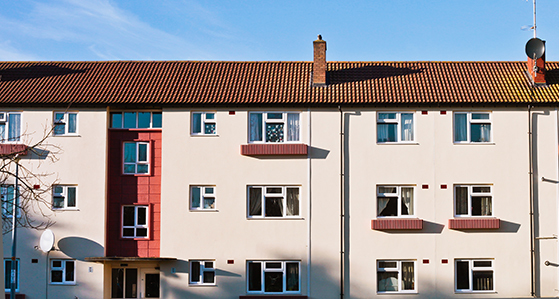You are viewing 1 of your 1 free articles
A place at the table?
The government is planning to reduce councils’ influence over stock transfer associations. As Sophie Barnes finds out, this could have major implications for the relationship between councils and associations

Source: Ben Jennings
The Housing and Planning Bill has thrown up a number of surprises for councils, and not all are of the pleasant variety.
Housing officers have already been grappling with the prospect of paying money to cover the cost of Right to Buy discounts for housing association tenants, not to mention the loss of their own properties through Right to Buy and an increased administrative burden through Pay to Stay.
The government tacked on another amendment to the bill last week, which could have profound implications for future stock transfers and for the relationship between councils and associations. The change seeks to limit the influence councils have over housing associations that came into being as a result of large scale voluntary transfers (LSVTs). There are between 70 and 90 LSVT associations.
The amendment gives housing associations the power to remove board members appointed by a council, and allows the secretary of state to block councils from appointing or removing officers on housing association boards.
The National Housing Federation (NHF) has welcomed the amendment as a further move to free associations from state control. It is the latest step by the government in its deregulation package, which it hopes will persuade the Office for National Statistics to overturn its decision last year to reclassify housing associations into the public sector for public accounting purposes.
The majority of agreements with councils made at the time of a stock transfer gave the council powers to nominate people to housing association boards. Many also included ‘golden share’ arrangements, which gave councils the power to veto changes to housing association constitutions.
The NHF said many of these agreements have since been “reworked, but a significant number remain”.
Accountability
In a briefing to its members last week, the NHF says the proposed changes “should contribute to the body of evidence the government is putting together to show that housing associations are independent”.
The briefing added: “Housing associations will, of course, continue to work closely with local councils…and these necessary changes will do nothing to change those crucial and valuable partnerships.”
It would appear, though, that some of their colleagues in the local authority sector are less sure about this.
Councils argue that if they lose a place at the table of their local housing association, this hampers their ability to hold organisations to account on behalf of residents.
Labour-led Lambeth Council transferred 10,000 homes to a variety of housing associations over the years. The council thinks the amendment “breaks the [housing association’s] fundamental relationship with tenants”. A council spokesperson says this “loss of accountability” may make stock transfers “less attractive” to tenants and they may not support transfers in the future.
John Biggs, Labour mayor of Tower Hamlets Council, says many stock transfers were only supported by residents after the council made “specific commitments to be represented on local boards”.
Warrington Council, which undertook a stock transfer in 2010, says it is a “backward step” that will eliminate council involvement in “an area of strategic importance”.
It also “appears to contradict the government’s own devolution agenda”, the spokesperson adds.
So to what extent will stock transfer associations use these proposed new powers to remove council representatives from their boards? A number of housing associations are already reviewing their board structures and see the government’s amendment as timely. Torus, the recipient of Warrington Council’s housing stock, is already reviewing its governance arrangements but insists it is committed to “local representation and accountability”.
One senior person from an LSVT association, who wished to remain anonymous, said the amendment is welcome because it is keen to skill up its board. For the association, this means removing council representatives to make way for people with a broader range of skills. However, Philip Glanville, cabinet member for housing at Labour-led Hackney Council, gives this argument short shrift.
He says: “If there’s a failing around skills on a board then you work on that, or you advertise for different nominees. I don’t think hiding behind skill base is really tenable. I think it’s important to bring a sense of community and values to a board as well.”
Riverside said it is reviewing its local governance arrangements and will make a final decision in the next few weeks.
A Riverside spokesperson added: “Whatever our decision, we consider a good working relationship with our local councils is important. Much of our work is done in partnership with local authorities and it is our desire to work closely with officers and councillors in a variety of ways.”
Some councils are concerned housing associations could lose sight of the welfare of their current tenants as the government pushes for a focus on development. Mr Glanville says tenants are worried that housing associations are becoming “more development-focused and perhaps less geographically identified”.
However, Gemma Bell, senior associate at Anthony Collins Solicitors, said the move to reduce council influence could be a “welcome lifeline” for housing associations who “feel their ability to control their own destiny is fettered by local authority influence at member level”. She added other, perhaps smaller, housing associations may fear the change will make them more vulnerable to unwanted mergers, as councils would no longer be able to use their “constitutional clout” to fend off approaches.
The government’s plan to reduce council influence is set to lead to tussles between councils and housing associations which boil down to one crucial question - how much direct influence should elected officials have over private organisations that provide a public good? Associations and councils will probably answer that question in different ways.








